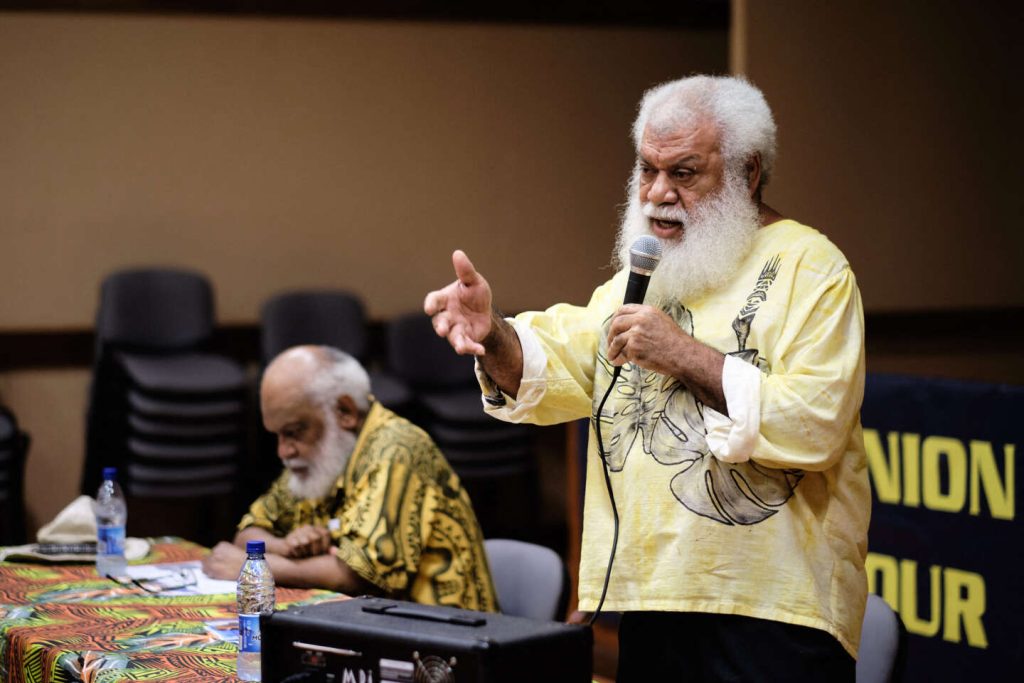In a recent incident in New Caledonia, the mines of the Société Le Nickel (SLN) in the North Province fell silent at midnight on Wednesday, April 10th. This was due to a dispute between the company and Paul Neaoutyine, the iconic president of the North Province of New Caledonia and an independence advocate. The 750 employees of SLN are now focused on ensuring the sites’ safety while waiting for a potential agreement to be reached. This situation adds to the ongoing crisis in the nickel industry that the Minister of Economy, Bruno Le Maire, had pledged to address in a new “pact”. At the same time, a political crisis regarding the freezing of the electoral roll in New Caledonia is intensifying, with 20,000 demonstrators expected to march in Nouméa.
Paul Neaoutyine, known for his rare and assertive statements, issued a stern ultimatum to SLN on Wednesday, demanding that the company provide the necessary financial guarantees for the next four years of operation at their nine mining sites in the North Province. These guarantees are aimed at covering environmental damages in case of accidents or company failures, totaling 30 million euros for this province alone, and 52 million euros for all SLN mining sites in the territory. This legal obligation poses a financial burden for SLN, whose financial situation is already precarious. After five months of failed conciliation procedures, the company’s CEO, Jérôme Fabre, announced the request for a court-supervised restructuring process. As of now, the company’s cash flow only provides visibility until the end of May.
In response to the financial difficulties faced by SLN, Eramet, a company in which the French state holds a 27% stake, stepped in to provide the necessary guarantees, albeit for a two-month duration initially. This was rejected by Paul Neaoutyine, leading to the halt of mining activities at midnight. Following a renewed appeal to Eramet, the company pledged to support SLN for twelve months, instead of the four years demanded by the North Province. The situation remains tense, with SLN announcing the resumption of activities on Friday before retracting in response to another strong letter from Neaoutyine and possible internal dissent among workers who were instructed not to resume their duties.
The uncertainty and tension surrounding the SLN mining operations in New Caledonia highlight the complex dynamics at play in the nickel industry and the broader political landscape of the territory. As negotiations continue between the company, the government, and the provincial authorities, the future of SLN’s operations and the livelihoods of its employees hang in the balance. The intervention of key stakeholders such as Eramet adds another layer of complexity to the situation, as differing interests and priorities come into play. The outcome of these negotiations will not only impact the economic stability of the region but also have broader implications for the political stability and autonomy aspirations of New Caledonia. With various parties involved and conflicting demands on the table, finding a sustainable solution that addresses the economic, environmental, and social concerns at hand remains a significant challenge.















